Donald Trump claim of immunity clashes with Richard Nixon pardon legacy. What we know
Donald Trump's argument that he is immune from criminal prosecution clashes with the precedent established by the pardon of Richard Nixon in three conclusive ways.
Trump's lawyers offered the argument on his behalf in what has been a week of court appearances. On Thursday, the former president's enterprises were the focus of closing arguments in Manhattan in a separate case dealing with allegations of fraudulent dealings by his company, the Trump Organization.
On Tuesday, Trump attended the proceedings before a three-judge appeals panel in Washington, D.C. over whether he could be prosecuted for his efforts to overturn the 2020 presidential election. That's where his attorneys made the case for nearly absolute immunity. And that's what prompts the Nixon analogy.
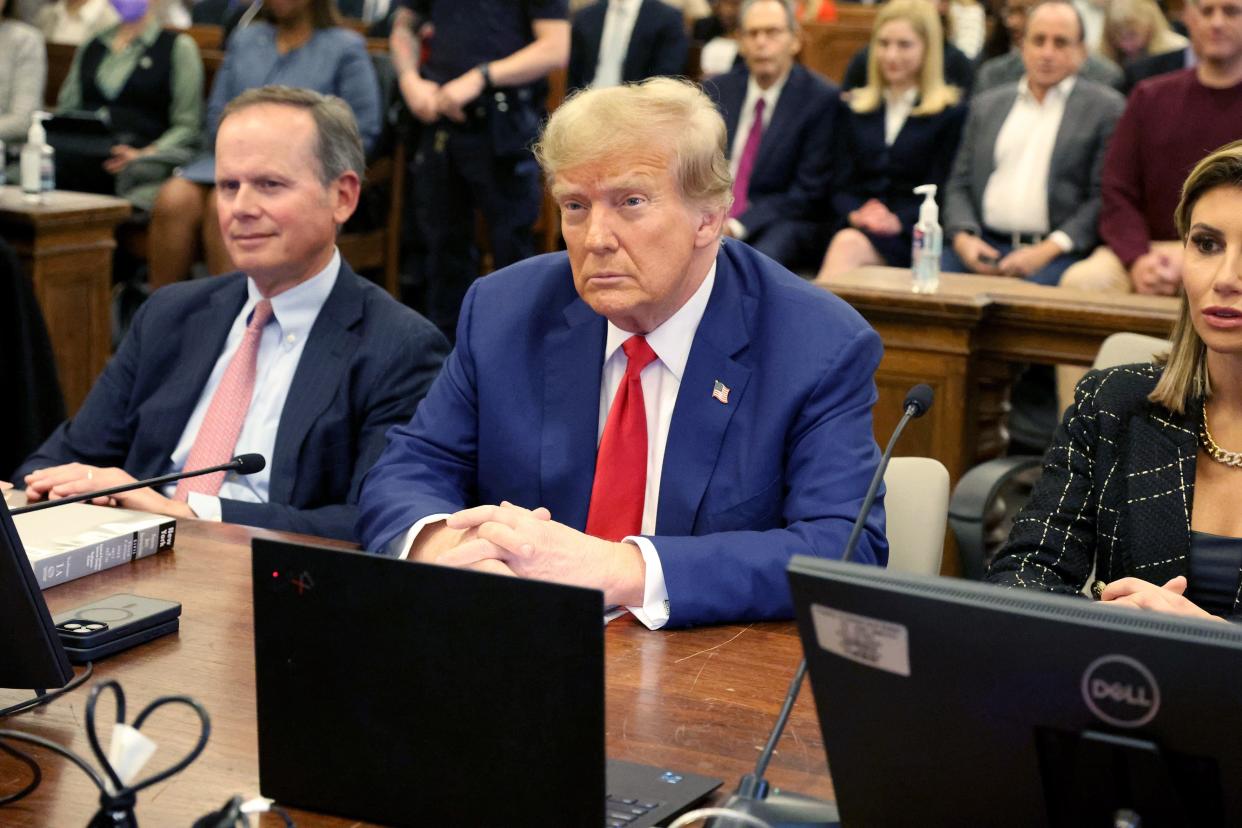
The 37th president resigned in August 1974 in the face of certain impeachment by the U.S. House, conviction in a U.S. Senate trial and removal from office. Once Nixon was no longer protected by the immunity afforded to a sitting president, federal prosecutors were moving toward indicting him on conspiracy charges.
Those proceedings were abruptly halted on Sept. 8 of that year when Nixon's successor, Gerald Ford, granted the disgraced president a full and unconditional pardon.
Here are three ways in which the Nixon historical precedent offers direction on Trump's current legal case.
Nixon, like Trump, did not pursue alleged bad actors in an election conspiracy as an official role
Trump has argued that he acted within his "duty" as president and that "what I was doing was bringing to light the fact that the Election was, without question, Rigged and Stolen."
But a similar argument could be made about Nixon. The motive for the June 1972 break-in at the Watergate complex, which launched the scandal, was neither to steal money nor to conduct some other larceny. Instead, the operatives were targeting the leadership of the Democratic Party who they suspected of being bad actors conspiring to cheat Nixon out of a second term in a "plot" that presumably included illegal fundraising, connections with international communists and other tactics.
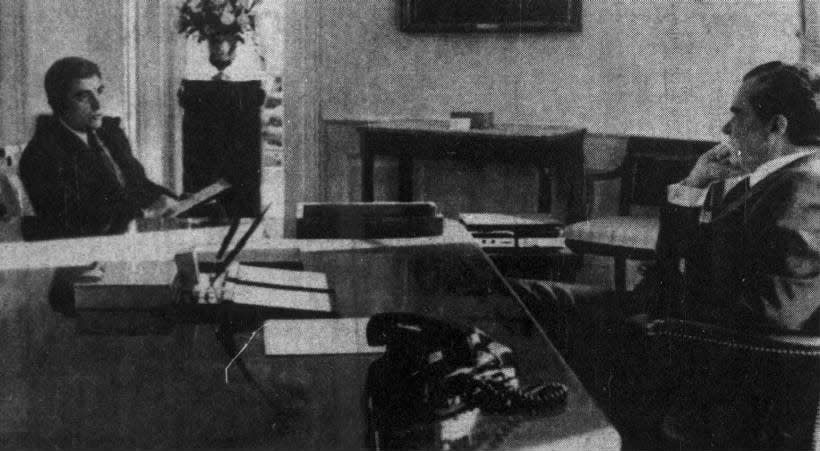
In a recorded conversation 50 years ago this month, Nixon asked to be told the purpose of the break-in.
His chief of staff, H.R. Haldeman, replied: “They were looking for stuff on two things. One, on financial. And the other on stuff that they thought they had on what [the Democrats] were going to do to screw us up, because apparently a Democratic plot.”
The common denominator is both the Nixon White House and Trump White House viewed themselves as victims of a conspiracy by disloyal Americans employing dirty tricks to win an election — nefarious acts they were determined to root out at all costs.
Nonetheless, that purpose lacks constitutional standing. Elections expert David Becker of the Center for Election Innovation & Research said the U.S. Constitution refutes Trump's claim to a governmental role since it reserves elections-related responsibilities to the states and not the president. "The president is one who experiences elections. He doesn't run them," he said.
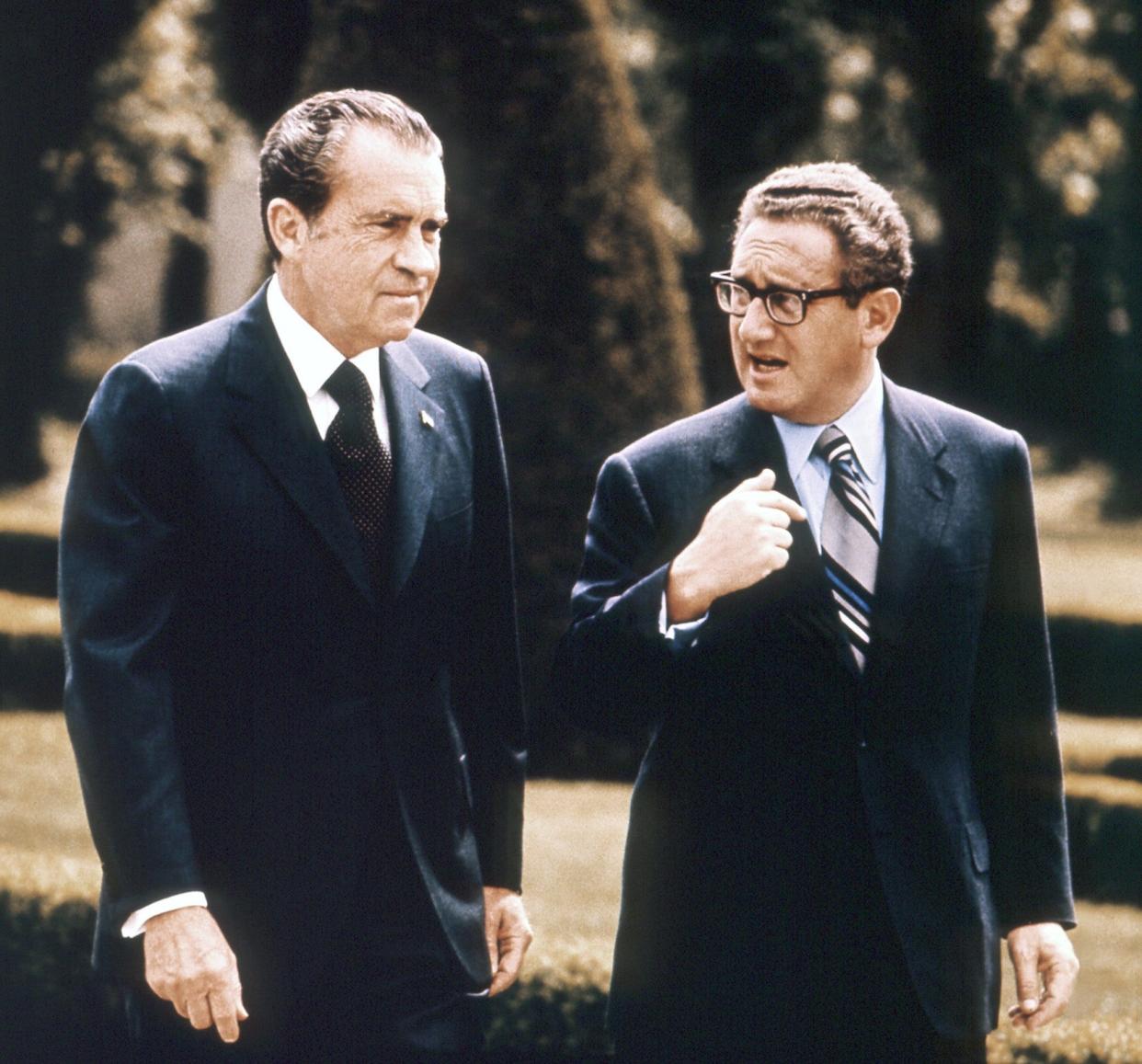
If Trump is right about presidential immunity, then Nixon would not have needed a pardon
Nixon would have been indicted, just as Trump has been, on allegations of wrongdoing.
On Dec. 29, 16 former prosecutors, elected officials and other government officials submitted a brief to the U.S. District Court of Appeals that heard arguments Tuesday in the Trump case. One of the 16 is Philip Lacovara, who served as counsel to Watergate prosecutor Leon Jaworski.
The officials said in a statement accompanying their document that the former president's "extraordinary request that the court grant him absolute immunity from federal criminal prosecution for all official acts he took while President has no basis in constitutional text, structure, or history."
The brief noted that Nixon accepted the pardon precisely to "shield" himself against a criminal case.
More: Legal analysts: Sharp differences between Nixon, Trump belie campaign talk of a pardon
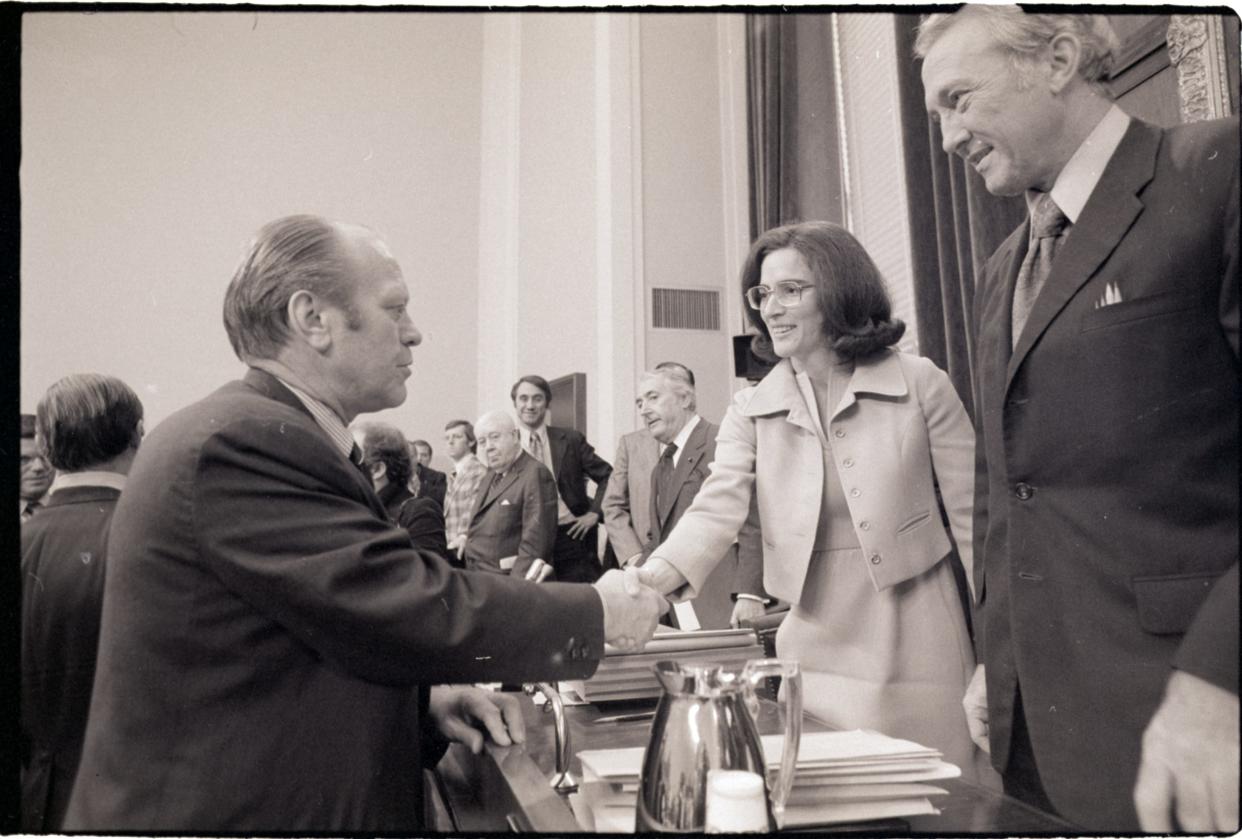
"Presidents Ford and Nixon recognized, by granting and accepting the pardon, that a pardon was necessary to shield the former President from criminal prosecution for allegedly official acts," the brief states.
In interviews with The Palm Beach Post, another member of the Watergate investigative team, Jill Wine-Banks, said Nixon would have been charged with criminal conduct if not for Ford's act of forgiveness.
Wine-Banks also noted that the former president was already an unindicted co-conspirator in the cover-up case against former Attorney General John Mitchell, former Chief of Staff H.R. Haldeman and others in the Nixon administration.
More: 5 things to know about the Boynton Beach man who secretly negotiated Nixon pardon
Nixon accepted pardon, and thus admitted guilt
In a June 2018 tweet, then-President Trump answered a question that had not been asked. Namely, would he consider pardoning himself?
"As has been stated by numerous legal scholars, I have the absolute right to PARDON myself, but why would I do that when I have done nothing wrong?" he wrote on Twitter, now called X.
Whether a presidential self-pardon is possible has not been constitutionally determined, but what is known is that accepting a pardon is an admission of guilt, which Trump's tweet at the time appeared to have inadvertently conceded.
More directly, the principle that acceptance of a pardon is an admission of guilt is a legacy of the Nixon pardon.
Before granting Nixon the pardon, Ford sent a legal confidante, Benton Becker, to visit Nixon in San Clemente and essentially "read him his Miranda rights," according to one constitutional scholar.
The Nixon pardon: It was negotiated by a Boynton Beach lawyer. Did it leave a road map for Trump post-presidency?
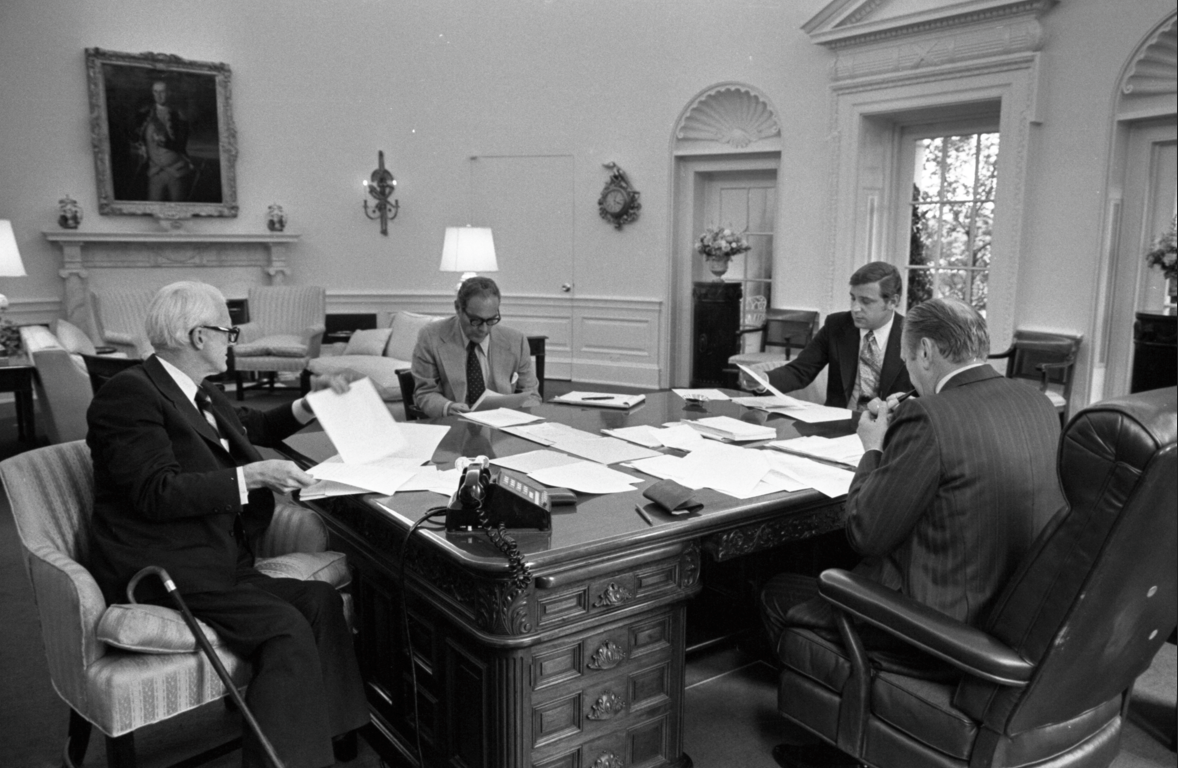
In painstaking, and painful, fashion, Becker later wrote and spoke about how he detailed the potential charges against Nixon in convincing him to acknowledge them in the tense meeting. Years later, in a conference, Becker, who lived in Boynton Beach before he passed away in 2015, recalled how Nixon anguished through the "harsh" session.
“It was harsh on him to do it,” Becker later said.
When Nixon sought to plead his innocence, Becker said he shut him down.
“But you are involved with obstruction of justice,” Becker recalled telling Nixon. “And here is the definition of obstruction of justice. And here is the tape, the transcript of the tapes from March of ’74, when you are discussing a CIA payoff for the break-in in the Watergate hotel.”
Nixon relented and agreed to issue a statement accepting responsibility and some culpability. “I was wrong in not acting more decisively and more forthrightly in dealing with Watergate, particularly when it reached the stage of judicial proceedings and grew from a political scandal into a national tragedy,” the statement read. “No words can describe the depth of my regret and pain at the anguish my mistakes over Watergate have caused the Nation and the Presidency — a Nation that I so deeply love.”
Antonio Fins is a politics and business editor at The Palm Beach Post, part of the USA TODAY Florida Network. You can reach him at afins@pbpost.com. Help support our journalism. Subscribe today.
This article originally appeared on Palm Beach Post: Trump claim to presidential immunity clashes with Nixon pardon legacy
